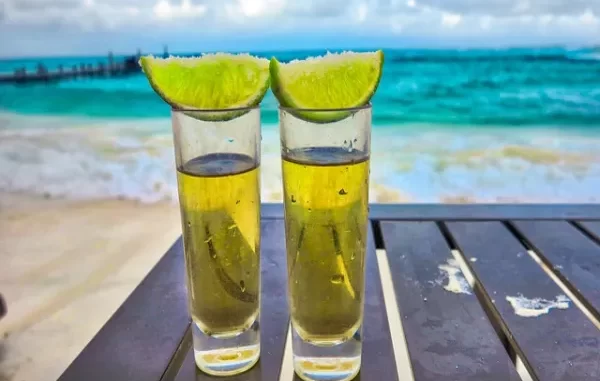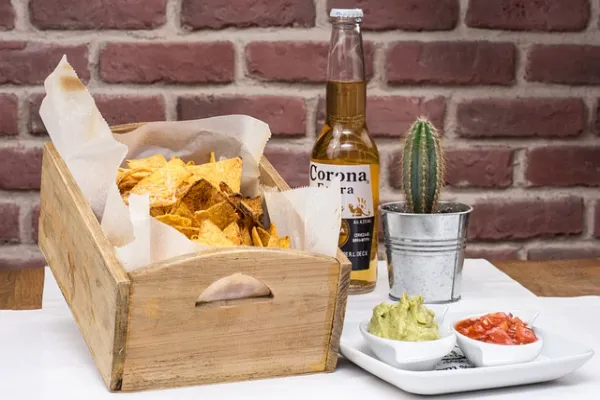
Tequila is a type of alcohol that is produced by distilling the blue agave plant, which’s native to Jalisco, Mexico. While it is often associated with parties, there are aspects of tequila that are often overlooked. In this article we will explore facts about tequila, including its historical background, the intricate process involved in its production and the different varieties of tequila available. By the end of this reading, you’ll have an understanding of this Mexican spirit.
Discover the Rich History of Tequila
Tequila, a beverage with a rich heritage spanning centuries, has been cherished by the Mexican people. Distilled from the juice of the plant, which is native to Mexico, tequila holds deep cultural significance.
Its origins can be traced back to times, where an Aztec drink called octli or pulque was made from fermenting agave sap. During that era, the Spanish introduced a distillation process that gave birth to tequila as we know it today.
Tequila played a role in Mexico’s fight for independence, serving as currency and payment for soldiers. It also found its place at gatherings. Was joyfully shared during the signing of the Treaty of Guadalupe Hidalgo.
Within practices, tequila holds a sacred place. Often accompanied by sangrita, a tequila drink adds charm to various rituals.
In years, tequila has gained popularity in the United States, leading to a significant rise in production.
Tequila is currently being produced in countries such as Mexico, the United States, Canada and Spain.
Tequila holds significance in culture. Its production has embarked on an extensive journey continuing to bring joy to people. Whether you’re seeking to delve into its roots or simply savor a beverage, tequila offers a distinct experience that is bound to satisfy your palate.
Unveil the Variety of Tequila Types
Tequila, a loved alcoholic beverage, originates from a plant in Mexico and boasts a rich history. It has gained popularity worldwide due to its versatility and captivating flavors. Whether you prefer the iconic blue agave variety or more contemporary interpretations of this drink, tequila offers a range of options to savor.
Originating from Mexico, tequila is crafted using the plant as its ingredient. The known type of tequila is derived from the blue agave variety cultivated in regions such as Jalisco, Nayarit and Tamaulipas. The process involves harvesting the plant and carefully cooking and distilling its heart, known as the piña, resulting in 100% blue agave tequila—commonly found in bars and stores.
Apart from 100% agave tequila, there are enticing varieties available. One such type is mixto tequila—a blend of agave and other sugars—which tends to be more affordable compared to its counterpart. Additionally, there’s tequila that undergoes aging in oak barrels for least one year. This particular variety boasts a smoother flavor profile often sought after for cocktail creations.
Tequila can also have flavors by adding fruits, herbs and spices, resulting in a distinct taste. Some popular flavored tequilas include mango, watermelon, jalapeño and lime. These flavored variations can be savored on their own. Used to craft one of a kind cocktails.

There are actually quite a few cocktails that feature tequila as the star ingredient. One of the best known is the margarita, made with a mix of tequila, lime juice and triple sec. There are also tequila-based cocktails, like the Paloma, Tequila Sunrise and Tequila Slammer.
Tequila is a flavorful spirit that can be enjoyed in various ways. Whether you prefer 100% tequilas or flavored options, there’s something for everyone to appreciate. You can savor it on its own. Mix it into a cocktail – either way, tequila is guaranteed to bring pleasure to your taste buds.
Explore the Health Benefits of Tequila
Tequila, a variety of alcohol, is a distilled spirit derived from the blue agave plant. It has been enjoyed for centuries due to its health benefits.
One of the advantages of tequila is its ability to potentially lower the risk of heart disease. This is attributed to the presence of fructans, a type of fiber found in tequila that is believed to aid in reducing cholesterol levels. Additionally, research suggests that tequila may play a role in preventing the formation of blood clots associated with heart attacks and strokes.
Moreover, tequila serves as a source of antioxidants, which helps protect the body against damage caused by radicals. Doing it may contribute to reducing the likelihood of diseases like cancer. Furthermore, tequila contains agavins—a sugar that could potentially assist in regulating blood sugar levels—making it advantageous for individuals managing diabetes.
Furthermore, tequila can promote digestion due to its content of inulin—a dietary fiber derived from the agave plant—which supports digestive health. Additionally, it possesses inflammatory properties that have been linked to alleviating symptoms associated with certain conditions such as arthritis.
Finally, tequila might actually have some effects on your well-being. Research suggests that tequila has the potential to lower stress and anxiety levels, thereby improving your health. Furthermore, it can act as a stimulant, enhancing alertness and concentration.
In general, tequila offers a range of health benefits. It may help decrease the risk of heart disease, provide antioxidants to combat radicals, aid digestion, reduce inflammation and alleviate stress and anxiety. However, it is important to consume tequila in moderation as intake can have health effects.
Learn How Tequila is Made and Enjoyed

Tequila, a loved beverage derived from the blue agave plant, holds deep roots in Mexican tradition and has gained popularity worldwide. To truly appreciate tequila, it’s essential to understand its production and the various ways it is savored.
The blue agave plant is carefully harvested, with its leaves removed to unveil a succulent core known as the “piña.” This piña is cooked to extract its nectar, which undergoes fermentation resulting in a tangy liquid known as mosto. Through distillation, this mosto transforms into tequila, which then matures for months or even years. The aging process enriches both the flavor and color profiles of the tequila.
Tequila enthusiasts indulge in different ways. One popular approach involves savoring it by simply pouring a shot of tequila into a glass without any mixers. Another preferred method involves enjoying it alongside lime and salt; squeezing lime into the shot while licking salt off one’s hand before sipping the tequila. Margaritas also stand as a choice for relishing tequila.
This timeless mixed drink consists of tequila, lime juice and an orange liqueur served in a glass with a salted rim.
Tequila is a spirit that offers enjoyable options. Whether you prefer it neat with a twist of lime and a touch of salt or, as part of a margarita, tequila is truly versatile. Understanding its production process and various ways to savor it will enhance your appreciation for this delicious spirit.
To sum up, tequila holds an allure with its history and diverse applications. From its origins as a beverage to its present day popularity as a go-to party libation-tequila remains deeply ingrained in cultures worldwide. With its flavor profile suited for both drinks and straight shots alike, tequila is destined to remain beloved for years to come.

Leave a Reply